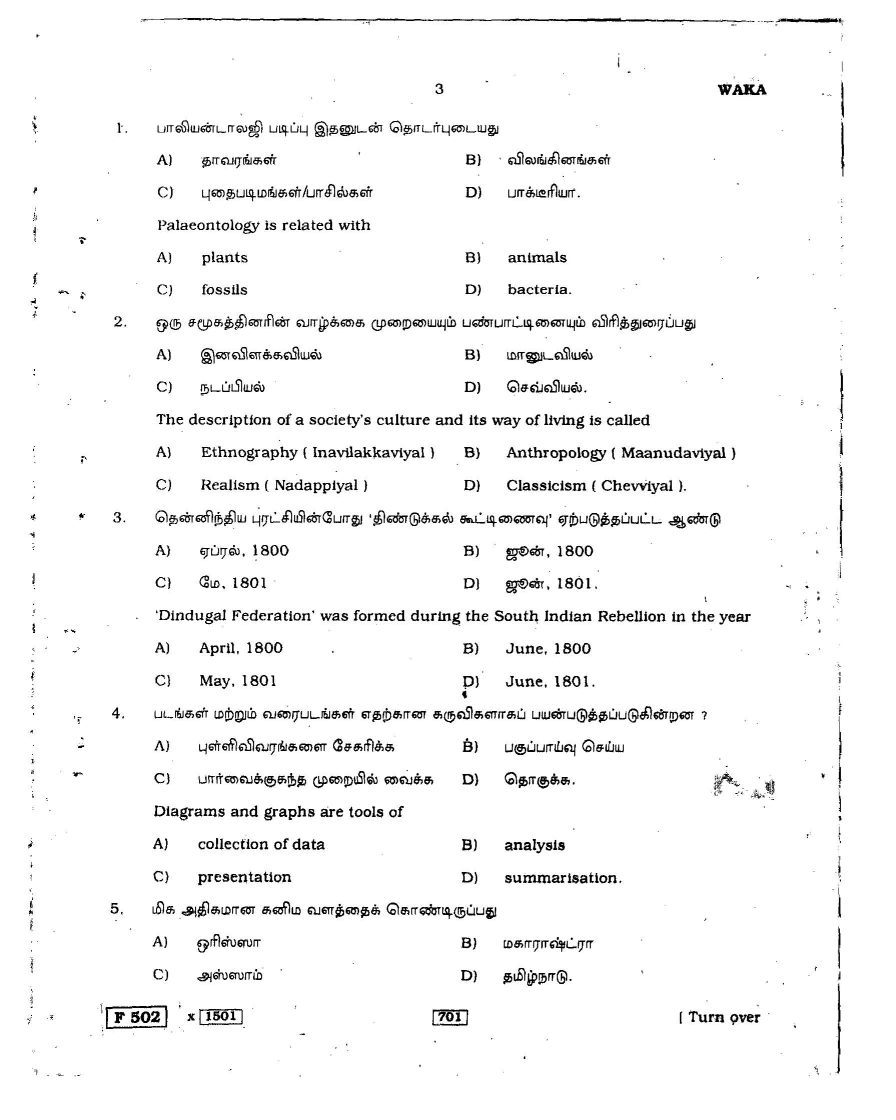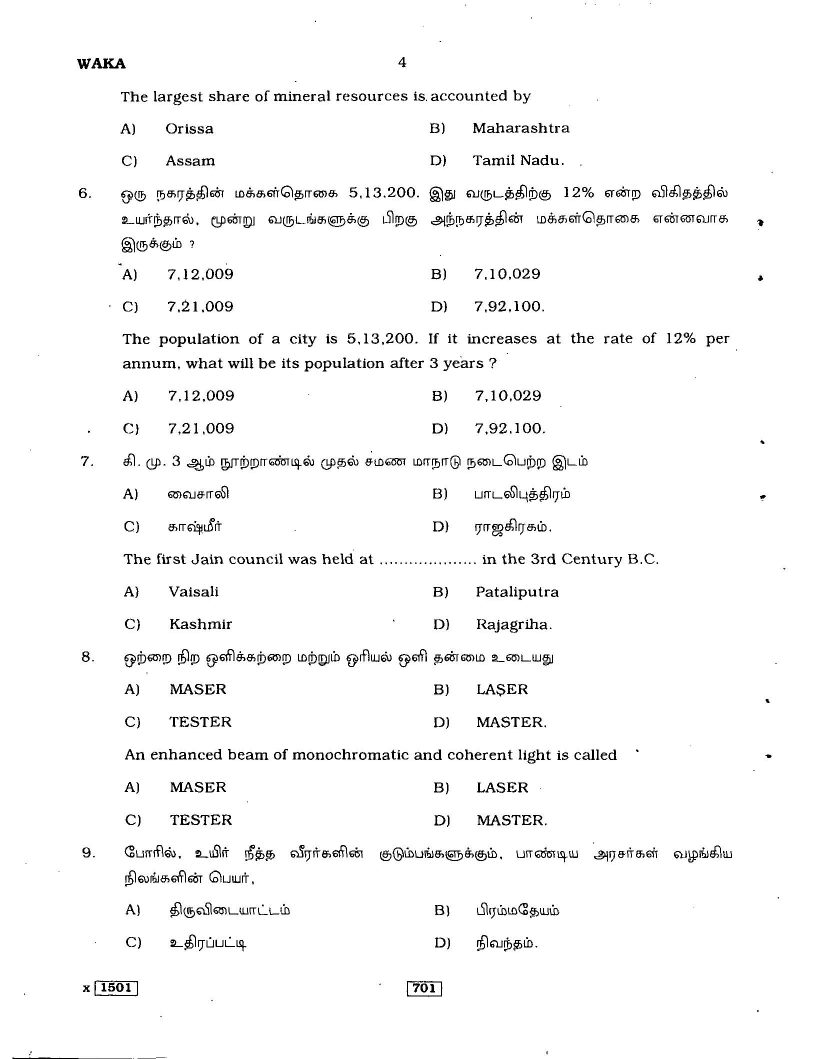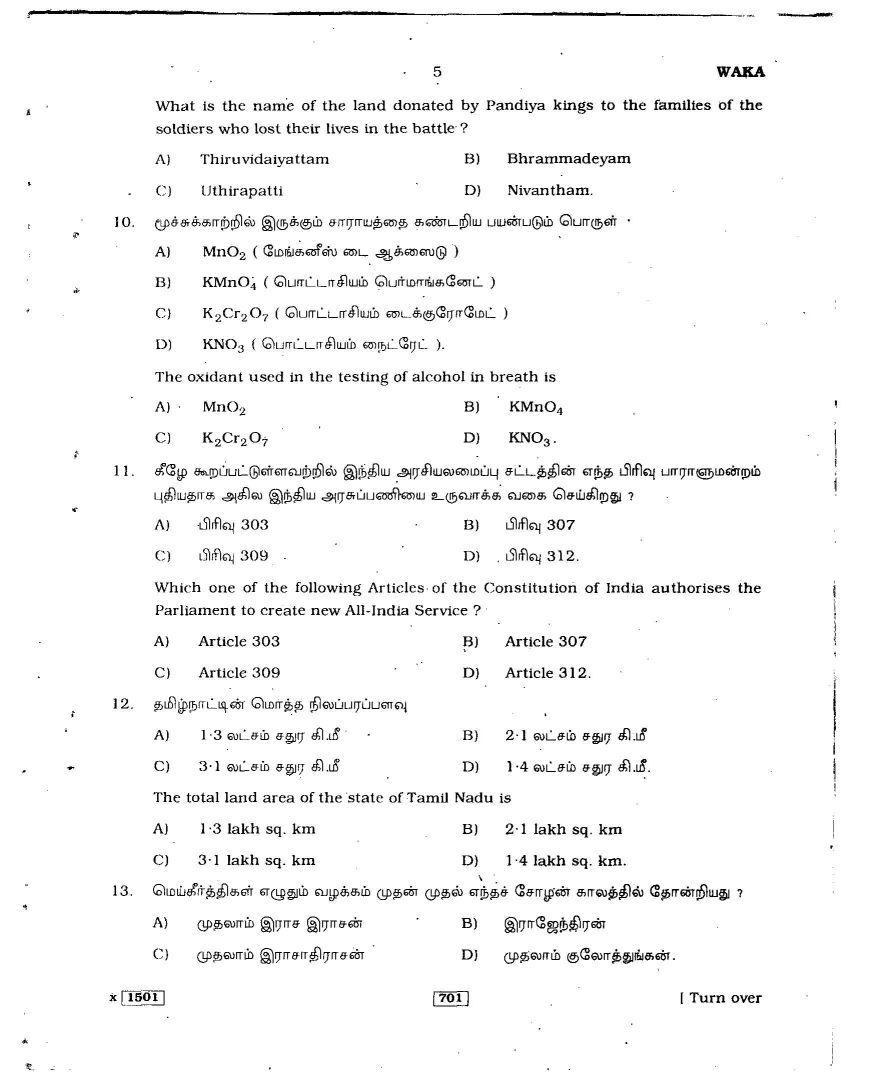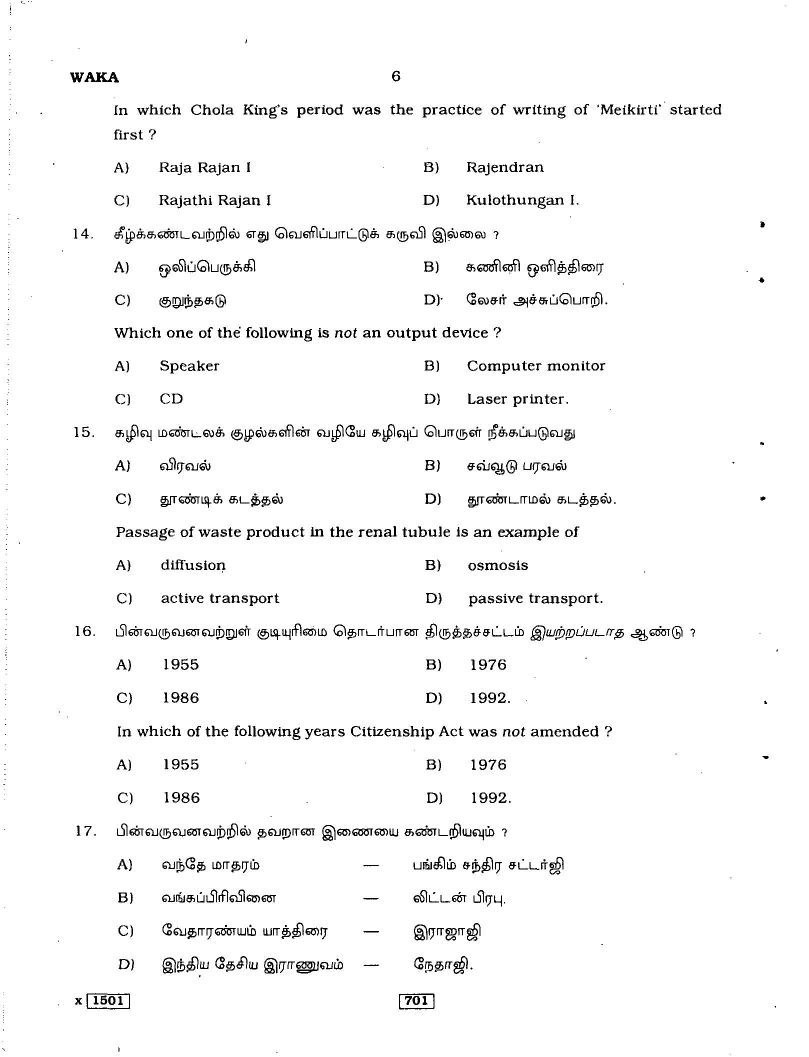| Re: TNPSC Group II Exam preparation tips
Here are tips to prepare for TNPSC Group II exam:
The Question paper will be in the 10th Standard Level but 20 - 30% of the questions may come from the 11th and 12th Std books.
So, to score high marks you need to cover these books too.
Make notes in a separate note book or write in the top or bottom of the book page itself
Do not try to study a single subject for the whole day
Current Affairs for the Past One Year
Last 6 Months Current Affairs is Very Important
Give Mock test regularly to check your level
READ - REVISE - REVISE is the key to success
Syllabus;
UnitI
General science : PhysicsUniverse‐
General Scientific laws‐Scientific instruments‐Inventions and discoveries‐ National scientific laboratories‐Science glossary‐Mechanics and properties of matter‐Physical quantities, standards and units‐Force, motion and energy‐electricity and Magnetism ‐Heat, light and sound‐Atomic and nuclear physics.
ChemistryElements
and Compounds‐Acids, bases and salts‐Oxidation and reduction‐Chemistry of ores and metals‐Carbon, nitrogen and their compounds‐Fertilizers, pesticides, insecticides
BotanyMain
Concepts of life science‐The cell‐basic unit of life‐Classification of living organism‐‐ ‐Nutrition and dietetics‐Respiration
ZoologyBlood
and blood circulation‐Endocrine system‐Reproductive system‐Genetics the science of heredity‐Environment, ecology, health and hygiene, Bio‐ diversity and its conservation‐Human diseases, prevention and remedies‐Communicable diseases and non‐ communicable diseases
UnitII.
Current Events
History Latest diary of events – National‐National symbols‐Profile of States ‐Eminent persons & places in news‐Sports & games‐Books & authors ‐Awards & honours‐Latest historical events‐‐ India and its neighbours ‐ Appointments‐who is who? Political Science Problems in conduct of public elections‐ Political parties and political system in India‐ Public awareness & General administration ‐ Role of Voluntary organizations & Govt.,‐ Welfare oriented govt. schemes, their utility‐
GeographyGeographical
landmarks‐Policy on environment and ecology‐
Economics Current
socio‐economic problems New economic policy & govt. sector Science Latest inventions on science & technology Latest discoveries in Health Science Mass media & communication
Unit III. Geography Earth and Universe‐Solar system‐Atmosphere hydrosphere, lithosphere‐Monsoon, rainfall, weather and climate‐Water resources ‐rivers in India‐Soil, minerals & natural resources‐ Natural vegetation‐Forest & wildlife‐Agricultural pattern, livestock & fisheries‐ Social geography – population‐density and distribution‐Natural calamities – disaster management‐
Unit IV. History and culture of India South Indian history‐Culture and Heritage of Tamil people‐‐Advent of European invasion‐ Expansion and consolidation of British rule‐Effect of British rule on socio‐economic factors‐Social reforms and religious movements‐India since independence‐Characteristics of Indian culture42
Unity in diversity –race, colour, language, custom‐India‐as secular state‐Organizations for fine arts, dance, drama, music‐Growth of rationalist, Dravidian movement in TN‐Political parties and populist schemes‐ Prominent personalities in the various spheres – Arts, Science, literature and Philosophy – Mother Teresa, Swami Vivekananda, Pandit Ravishankar , M.S.Subbulakshmi, Rukmani Arundel and J.Krishnamoorthy etc.
UNITV.
INDIAN POLITY Constitution of India‐ Preamble to the constitution‐ Salient features of constitution‐ Union, State and territory ‐ Fundamental rights‐ Fundamental duties‐ Human rights charter‐ Union legislature – Parliament‐ State executive‐. State Legislature – assembly‐ Status of Jammu & Kashmir‐. Local government – panchayat raj – Tamil Nadu‐ Judiciary in India – Rule of law/Due process of law‐ Indian federalism – center – state relations‐ Emergency provisions‐ Elections ‐ Election Commission Union and State‐ Amendments to constitution‐ Schedules to constitution‐ Administrative reforms & tribunals‐ Corruption in public life‐ Anti‐corruption measures – Central Vigilance Commission, lok‐adalats, Ombudsman, Comptroller and Auditor General of India‐ Right to information ‐ Central and State Commission‐ Empowerment of women.
UNIT VI.
INDIAN ECONOMY Nature of Indian economy‐ Five‐year plan models‐an assessment‐Land reforms & agriculture‐ Application of science in agriculture‐Industrial growth‐Role of public sector & disinvestment‐ Development of infrastructure‐ National income Rural welfare oriented programmes‐ Social sector problems – population, education, health, employment, poverty‐ HRD – sustainable economic growth‐ Economic trends in Tamil Nadu ‐ Energy Different sources and development‐ Finance Commission ‐ Planning Commission‐ National Development Council
UNIT VI.
INDIAN NATIONAL MOVEMENT Early uprising against British rule‐1857 Revolt‐ Indian National Congress‐Emergence of national leaders‐Gandhi, Nehru, Tagore, Netaji‐Growth of militant movements ‐Communalism led to partition‐Role of Tamil Nadu in freedom struggle ‐ Rajaji, VOC, Periyar, Bharathiar& Others‐Birth of political parties /political system in India since independence—
UNIT VII.
APTITUDE & MENTAL ABILITY TESTS Conversion of information to data‐‐Collection, compilation and presentation of data Tables, graphs, diagrams‐Analytical interpretation of data ‐Simplification‐Percentage‐Highest Common Factor (HCF)‐Lowest Common Multiple (LCM)‐Ratio and Proportion‐Simple interest‐Compound interest‐Area‐Volume‐Time and Work Decision making
| 


